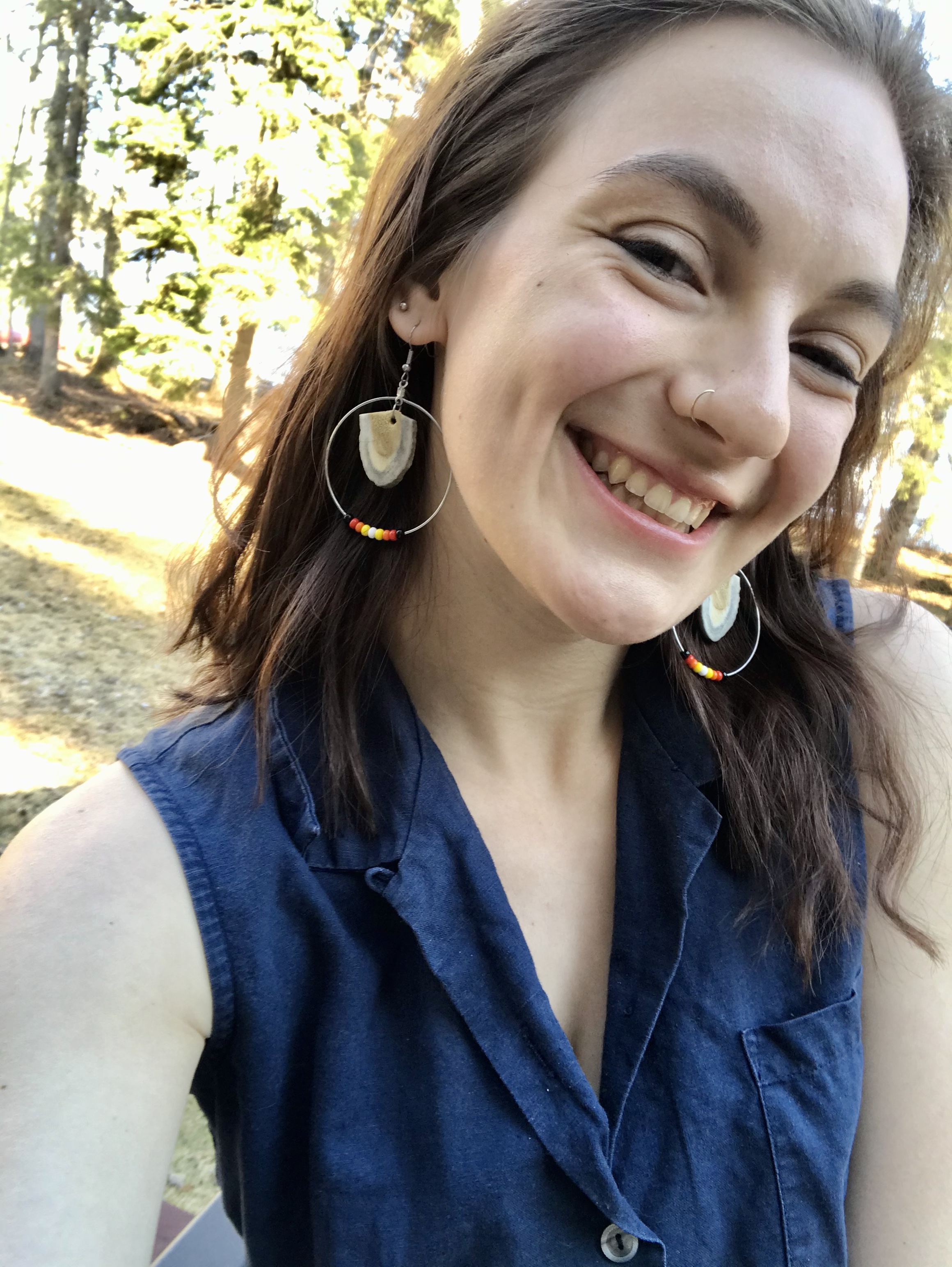
Stay Deadly: Sydney Kuppenbender
Sydney Kuppenbender has been with MentorSTEP since fall 2019 and this summer is working with Dr. MJ Barrett of SENS at a MentorSTEP summer intern. Sydney shares her thoughts on being an Indigenous woman in STEM.
Stay Deadly
"Stay proud, stay strong, stay determined, and stay deadly."
Sydney, thanks for chatting with us. What was your path to bring you to university? When and how did you find a love for science?
My parents were first generation university graduates, so I always admired the opportunities that found them as a result of their hard academic work. I found my love for science in high school, when I participated in many science fairs, and attended two Canada Wide Science Fairs in my final years of high school. In 2021, I will be the first in my family to graduate with a Bachelor of Science.
Have you had any mentors or role models along the way? If so, tell us about them.
The difficulty of being an Indigenous woman in STEM is that there are not many role models accessible to look up to or mentors to guide your journey. I was lucky to find a support system in my university chapter of .caISES (Canadian Indigenous Science and Engineering Society), first at McGill for the three years I attended there, and again at USask for my final two years of undergrad. The burden of being a minority in a competitive degree was lessened when shared together.
What have you been up to this summer as a MentorSTEP summer intern? Tell us about your supervisor, your project, and how things are going in our Covid era.
I was given a wonderful last minute opportunity to work with MJ Barrett in her intuitive interspecies communication work, and things have gone so well that she has offered to supervise me if I chose to do my masters in this field upon graduation.
[Note: Sydney was recently interviewed for a USask story on how students are handling the pandemic. Find that story here: Going Remote]
What advice might you have for Indigenous women thinking to enter STEM training and careers? What opportunities and barriers do you see?
The most important first step is to build a team among you who will vouch for you, guide you and support you. These people will come from many different places, be it at the Indigenous student centre, peer or faculty who you get on well with, elders, or clubs with mutual interests (such as MentorSTEP! Truly, I would not have had a job this summer if it wasn’t for Merle and her wonderful team).
The institution may try to break your spirit; do not let it bring you down. Education is our new buffalo and we are doing our ancestors proud by making space for ourselves in this colonizer space. People in the institution may try to tell you the teachings you grew up with, the traditions you’ve known since the beginning of your living memory, the lifestyle your family leads is lesser than or invalid. This is untrue. They do not understand the sheer power of intergenerational knowledge and strength of community. Stay proud, stay strong, stay determined, and stay deadly.
How and in what ways do you see science and STEM embracing Indigenous ways of knowing, especially Indigenous women’s knowledge? Where can and should we go from here?
I so rarely see STEM fields making space for Indigenous ways of knowing; rather, I see Indigenous students and academics claiming that space or creating space. It is important to remember that much of the grassroots work continues to be done by Indigenous peoples themselves, and a select few rockstar allies (like my boss MJ, who has been so accommodating of my wild and radical ideas). The role of allies, especially in academia, is to elevate and make space for BIPOC voices, especially in STEM fields.
Is there anything else that you’d like to add about being an Indigenous woman in STEM, a MentorSTEP intern, a University of Saskatchewan student, and/or a member of your own home community?
For non-Indigenous peoples:
- Nothing about us without us.
- Don’t ask for teachings or traditional knowledge without some kind of offering of compensation, even if the person you’re asking is a friend or colleague.
- Code switching is an exhausting feat for Indigenous academics, and requires much emotional and mental labour. Bear this in mind and make space for that expense of energy when asking for your peers to do that work.
For Indigenous peoples:
- Don’t let your expertise and knowledge be taken advantage of. You hold an awesome amount of knowledge that should be celebrated and recognized as such.
- Take care of yourself and be gentle when code-switching. It is exhausting work and requires recuperation and reflection.
- Don’t be afraid to take up space. But also don’t feel obligated to take up space. Do what you can, where you can, and know your ancestors walk your path with you.

